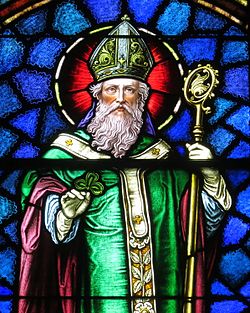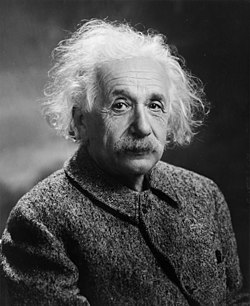Portal:Religion
The Religion Portal
Religion is a range of social-cultural systems, including designated behaviors and practices, morals, beliefs, worldviews, texts, sanctified places, prophecies, ethics, or organizations, that generally relate humanity to supernatural, transcendental, and spiritual elements—although there is no scholarly consensus over what precisely constitutes a religion. It is an essentially contested concept. Different religions may or may not contain various elements ranging from the divine, sacredness, faith, and a supernatural being or beings. (Full article...)
 Vital article
Vital article
Jainism (/ˈdʒeɪnɪzəm/ JAY-niz-əm), also known as Jain Dharma, is an Indian religion whose three main pillars are nonviolence (ahiṃsā), asceticism (aparigraha), and a rejection of any simplistic or one-sided view of truth and reality (anekāntavāda). Jainism traces its spiritual ideas and history through the succession of twenty-four tirthankaras, supreme preachers of dharma. The first tirthankara in the current time cycle is Rishabhadeva, who tradition holds lived millions of years ago; the twenty-third tirthankara is Parshvanatha, traditionally dated to the 9th century BCE; and the twenty-fourth tirthankara is Mahavira, who lived around the 6th or 5th BCE. (Full article...)
 Did you know (auto-generated)
Did you know (auto-generated)
- ... that Gherardo Gambelli, the incoming archbishop of Florence, served as a prison chaplain in Chad for over a decade?
- ... that the author of the comic book Timeless Voyage was the leader of a UFO religion?
- ... that the nonconformist minister Ichabod Chauncey was banished from England under the Religion Act 1592 and spent two years in exile in Holland where he published a defence of his actions?
- ... that the capital of South Ossetia once had more Jews than Ossetians?
- ... that Musa va 'Uj depicts figures from all three Abrahamic religions?
- ... that fictional religions, often described in speculative fiction, have in some cases inspired real religious movements?
Intelligent design (ID) is a pseudoscientific argument for the existence of God, presented by its proponents as "an evidence-based scientific theory about life's origins". Proponents claim that "certain features of the universe and of living things are best explained by an intelligent cause, not an undirected process such as natural selection." ID is a form of creationism that lacks empirical support and offers no testable or tenable hypotheses, and is therefore not science. The leading proponents of ID are associated with the Discovery Institute, a Christian, politically conservative think tank based in the United States. (Full article...)



































































